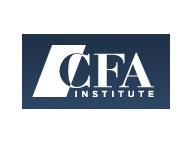Faculty News
—
Professor Emeritus Edward Altman discusses the current state of the credit market
—

Excerpt from CFA Institute blog -- "I believe a bubble is building in the credit market today. A bubble is defined as unsustainable prices in an asset class. Most fixed-income products’ prices are limited on the upside to par, so bubble in fixed income is defined by default rate. High yield is my vantage point. A bubble is building when [the] default rate goes above [the] historical average. It will burst when a two standard deviation year — i.e., a greater than 10% default rate — happens. It has happened five times since 1990, far higher than the two times implied by a normal distribution."
Faculty News
—

Excerpt from CFA Institute blog -- "I believe a bubble is building in the credit market today. A bubble is defined as unsustainable prices in an asset class. Most fixed-income products’ prices are limited on the upside to par, so bubble in fixed income is defined by default rate. High yield is my vantage point. A bubble is building when [the] default rate goes above [the] historical average. It will burst when a two standard deviation year — i.e., a greater than 10% default rate — happens. It has happened five times since 1990, far higher than the two times implied by a normal distribution."



















